I recently had the pleasure of presenting alongside an Indigenous colleague of mine to a group of health professionals. We are a bit of an unlikely couple. Leonie Hunter is a salt water and desert First Nation’s woman with a history of removal in her family. I am a middle-class Australian with a heap of White privilege. We view the world through different lenses, but what we share is an interest in the healing power of nature for health and wellbeing.
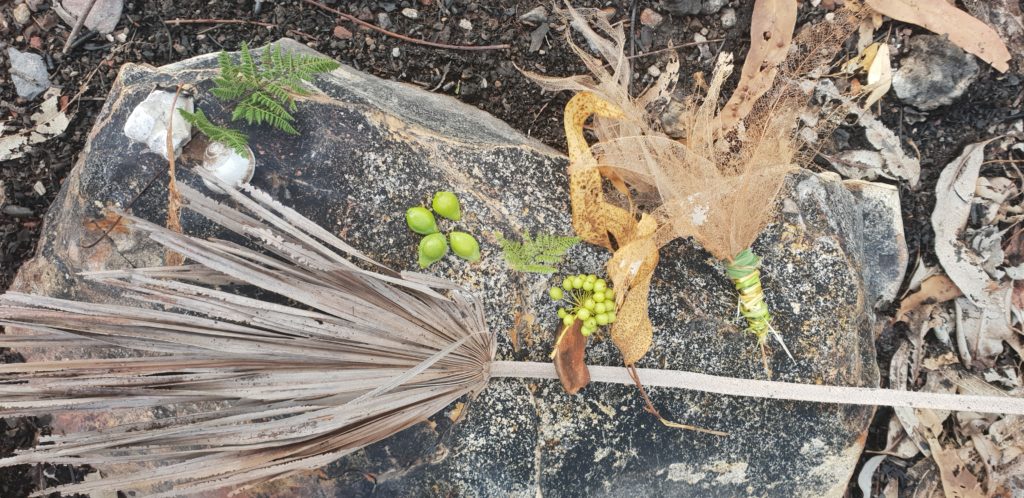
In our recent workshop, we had the opportunity to talk about our own worldviews and knowledge systems, with each of us having an understanding and appreciation for the other.
Leonie presented the case for connection to country being a critical component to improving Indigenous wellbeing. The National Strategic Framework for Aboriginal and Torres Strait Islander Peoples’ Mental Health and Social and Emotional Wellbeing states that
“Aboriginal and Torres Strait Islander health is viewed in a holistic context, that encompasses mental health and physical, cultural and spiritual health. Land is central to wellbeing. Crucially, it must be understood that when the harmony of these interrelations is disrupted, Aboriginal and Torres Strait Islander ill health will persist.”
This is something Leonie knows well through her own embodied connection and the people in her family who are feeling the ongoing health effects of being displaced from their traditional lands and customs. In our outdoor yarning circle she told many stories; what it is like to just feel the elements, gathering bush medicine to heal physical and emotional ailments, and receiving messages from the animals, birds and other beings. Leonie was lucky enough to grow up listening to the stories of Senior Kakadu Elder Bill Neidjie, now passed.
His words still resonate:
“Tree,
He watching you.
You look at tree,
He listen to you.
He got no finger,
He can’t speak,
But that leaf,
He pumping, growing.
Growing in the night,
While you sleeping,
You dream something.
Tree and grass same thing.
They grow with your body,
With your feeling.
If you feel sore,
Headache, sore body,
That means somebody killing tree or grass.
You feel because your body in that tree or earth.
Nobody can tell you,
You got to feel it yourself.”
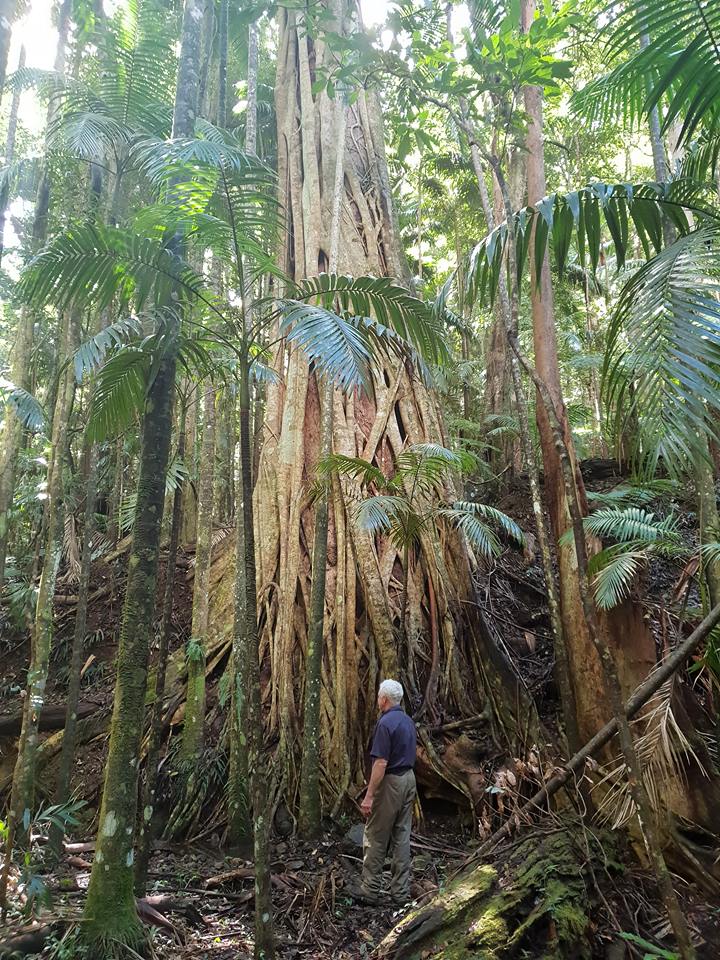
I, on the other hand, presented the evidence for nature connection for health and wellbeing from a Western scientific worldview. There is a mountain of research supporting the benefits of green space and being in nature for physical, social, emotional and spiritual health. My particular focus and interest is on the practice of Shinrin Yoku (or forest bathing). The Japanese have discovered that phytonicides or the ‘aroma of the forest’ has positive physiological and psychological effects to reduce stress. They found that a slow, relaxed forest therapy walk, lowered blood pressure, reduced cortisol levels (the stress hormone) and improved heart rate variablilty. Phytonicides were shown to boost the level of Natural Killer cells in our body, which boost our immune system and fight disease including cancer. Doctors now offer ‘green prescriptions’ for their patients to go walking on a Certified Forest Therapy trail.
Science is only really just proving what Indigenous people have intuitively known since time began. The reciprocal relationship with nature is in their DNA. In my worldview, they call this the biophilia hypothesis. We evolved from nature, so we are nature.
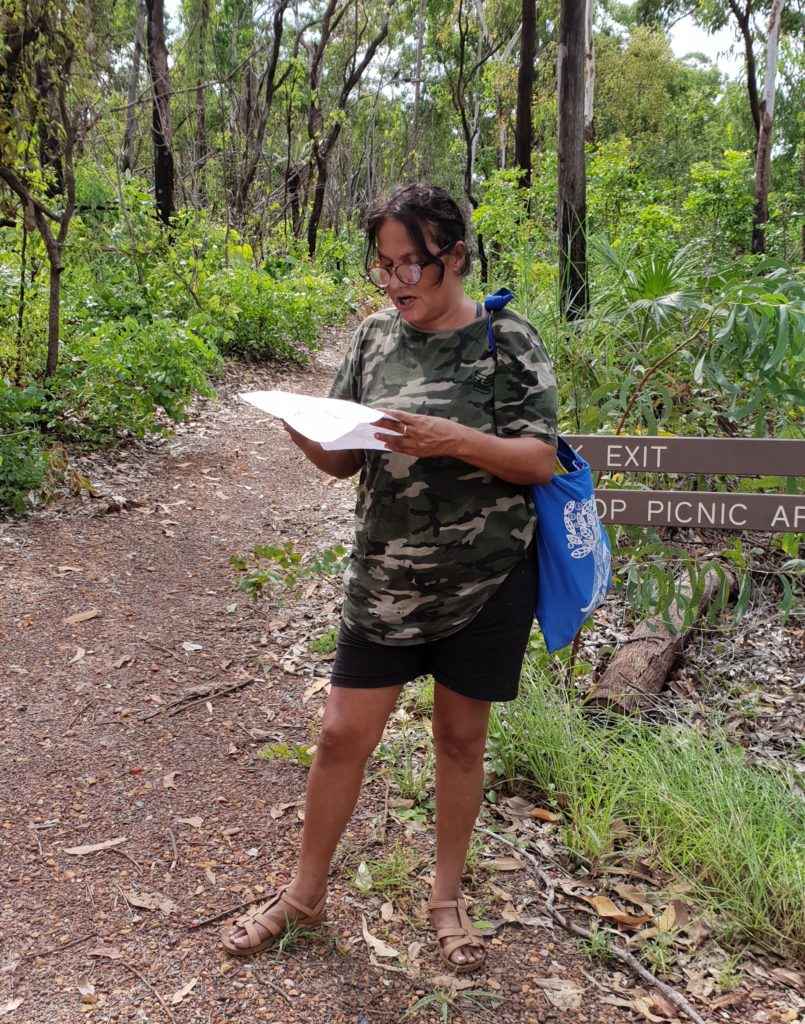
In our afternoon session at Holmes Jungle Nature Park, I had the pleasure of co-guiding a Nature and Forest Therapy walk with Leonie. Nature and Forest Therapy (NFT) is inspired by the practice of Shinrin Yoku and developed in California by the ANFT. Despite its Western roots, NFT allows those living in the fast-paced world of modern society an embodied experience of the healing power of ‘being’ on country.
With the words of Bill Neidjie ringing in their ears, Leonie invited our participants to find a tree that is watching them and sit with the tree for a while to share stories. As is so often the case, the trees always reach out to the right person. There were two fallen trees for the person who had recently experienced a separation, a tree with two large branches growing upward showing the two possible directions in life for another, and a tree that was begging to be leant against with a message to slow down. When given the opportunity to just ‘be’ without ‘doing’, to contemplate with our hearts not our minds, the medicine of the forest reveals itself. Miriam Rose-Ungunmerr’s talks about this presence of sitting on country as the practice of ‘dadirri’.
I feel blessed and privileged to be working alongside people like Leonie, sharing and learning from each other, having healing conversations, developing new levels of understanding and respect. Ecopsychology allows both worldviews to exist alongside each other at the same time, for all of it is truth.
This is my idea of Reconciliation in action.
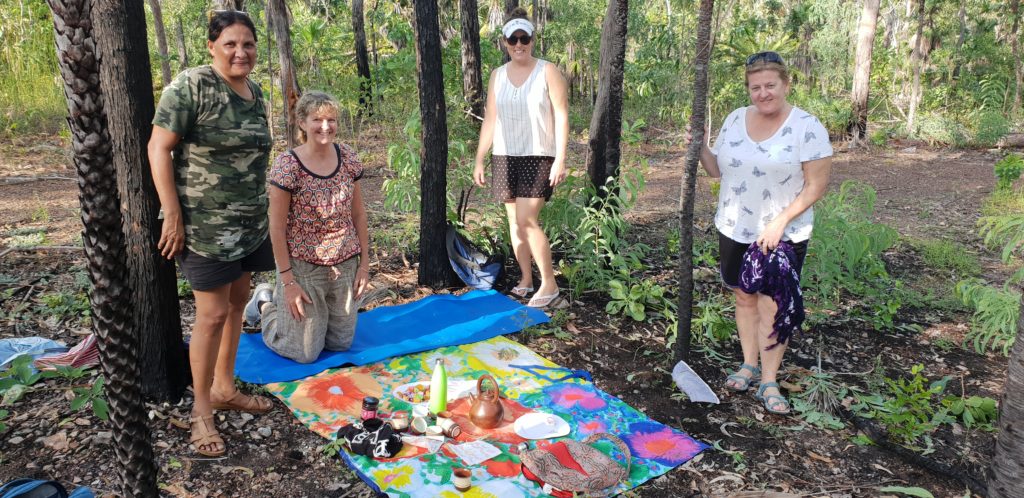

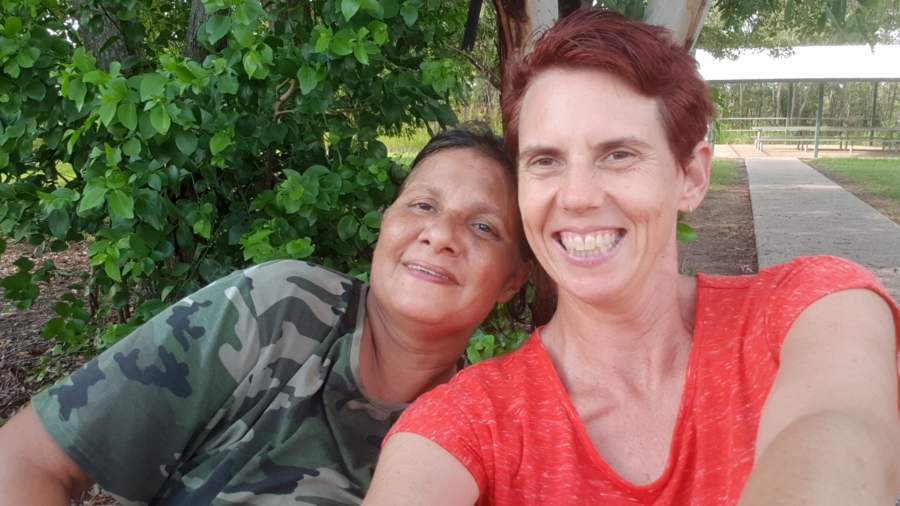
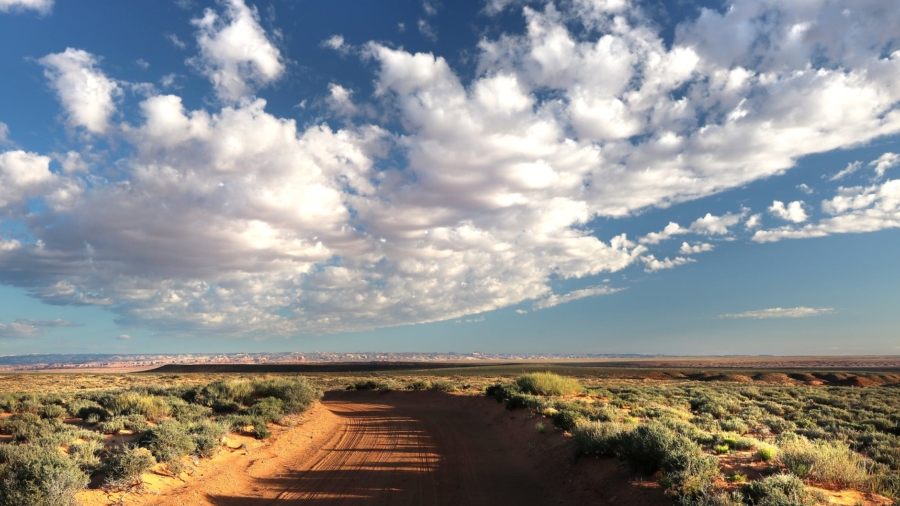
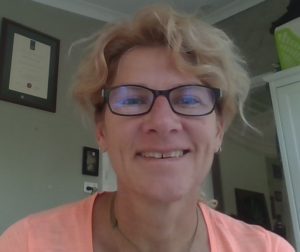

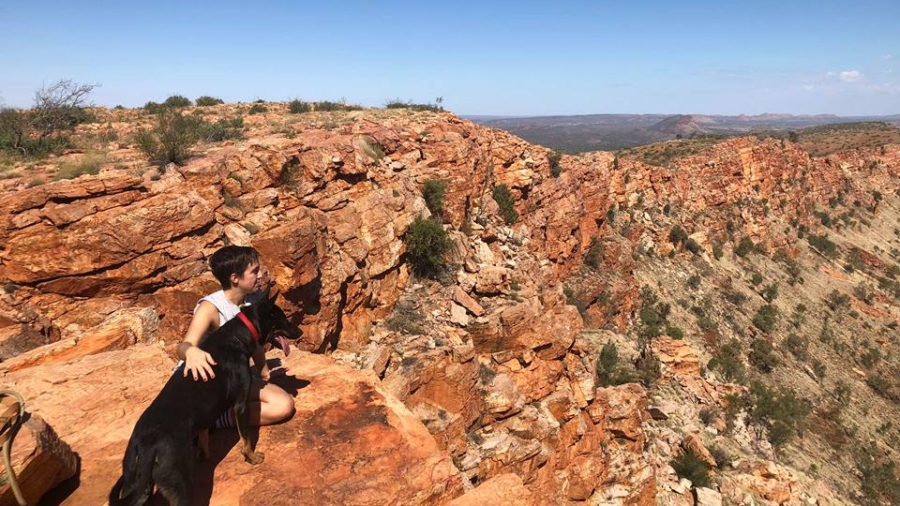
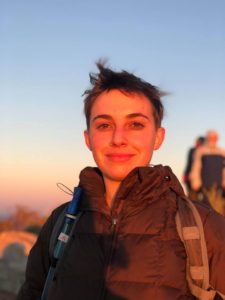
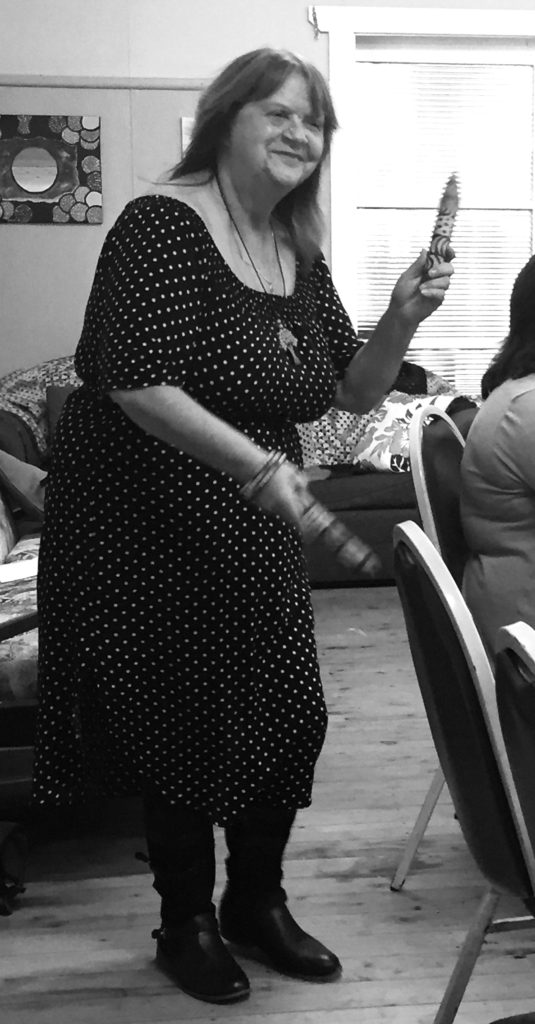
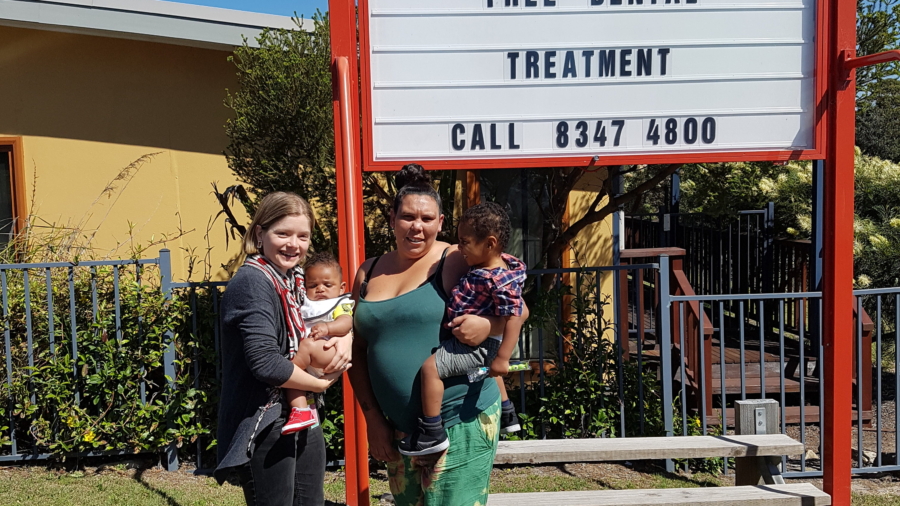
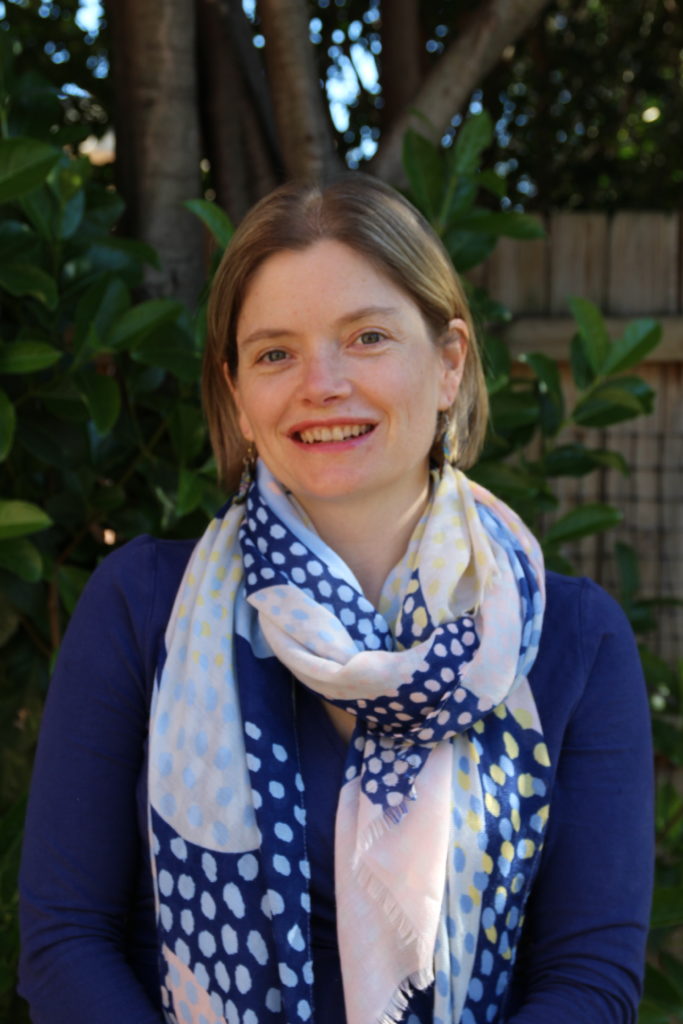
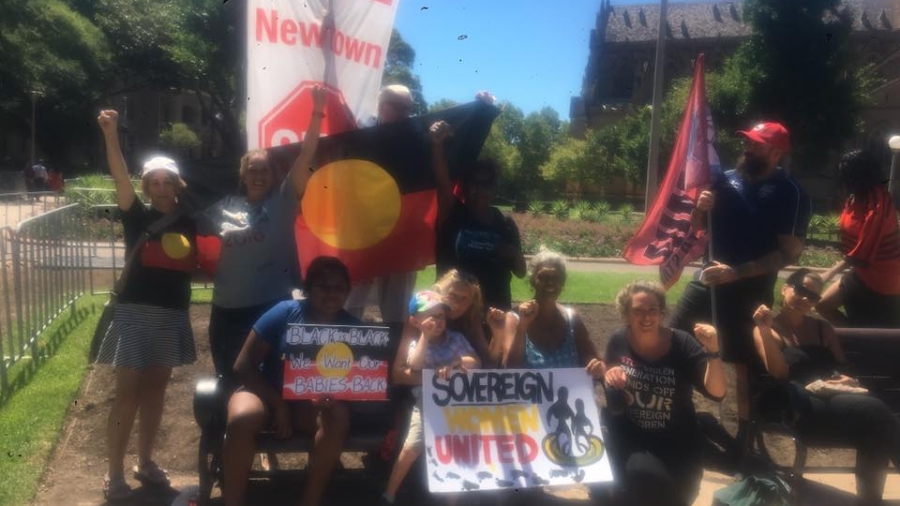
 Driven by personal family interests as well as deeply held values and a commitment to self determination, Sami shares the ingredients that have made practising Indigenous policy and advocacy work successful as a non-Indigenous woman. Social work students considering their future placements will find this episode invaluable and current non-indigenous practitioners will discover pearls of wisdom for standing alongside our Indigenous brothers and sisters for recognition and justice.
Driven by personal family interests as well as deeply held values and a commitment to self determination, Sami shares the ingredients that have made practising Indigenous policy and advocacy work successful as a non-Indigenous woman. Social work students considering their future placements will find this episode invaluable and current non-indigenous practitioners will discover pearls of wisdom for standing alongside our Indigenous brothers and sisters for recognition and justice.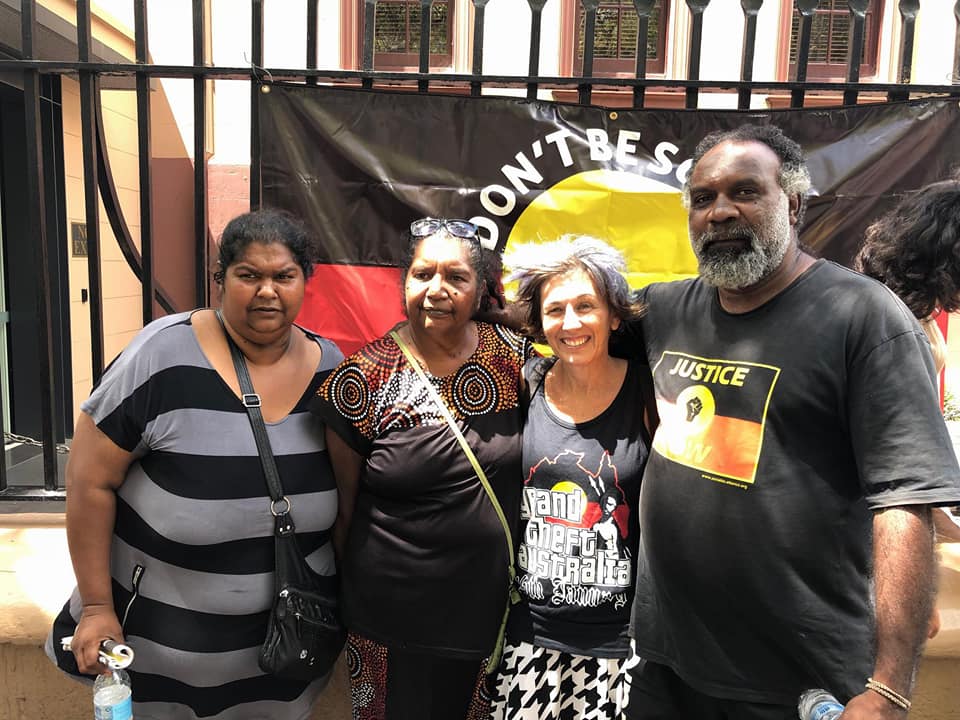
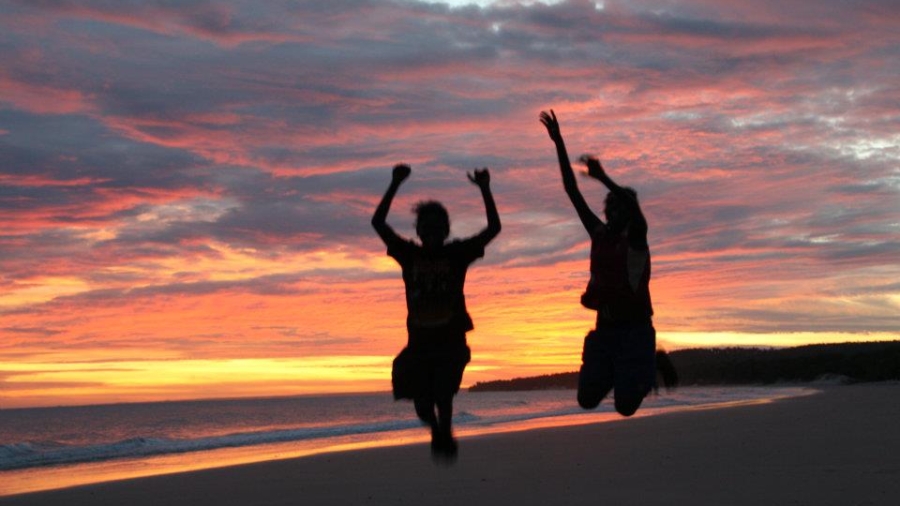
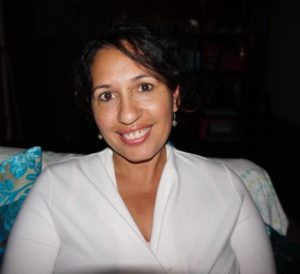 What a delight it was to be speaking with Tileah Drahm-Butler this week on ‘Talk the Walk’, about her journey into narrative therapy and her approach to working with Aboriginal and Torres Strait Islander people. Tileah’s passion for social work and giving Aboriginal people a voice shines through in this conversation. We also gain insight into the woman behind the work and the long list of inspiring women in her family that stand behind her.
What a delight it was to be speaking with Tileah Drahm-Butler this week on ‘Talk the Walk’, about her journey into narrative therapy and her approach to working with Aboriginal and Torres Strait Islander people. Tileah’s passion for social work and giving Aboriginal people a voice shines through in this conversation. We also gain insight into the woman behind the work and the long list of inspiring women in her family that stand behind her.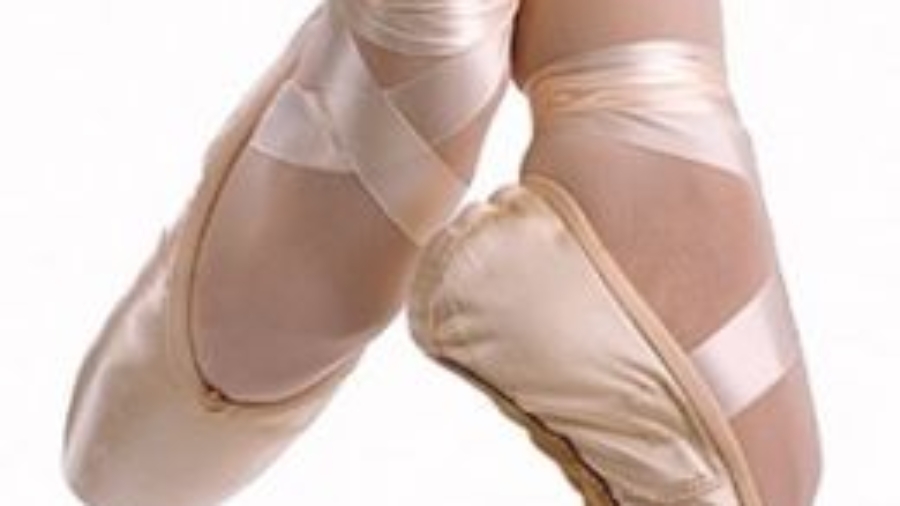
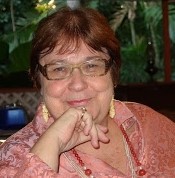 Get your dancing shoes on as we head into Episode 7 of Talk the Walk with Pamela Trotman.
Get your dancing shoes on as we head into Episode 7 of Talk the Walk with Pamela Trotman.